5 Qualities Of A Successful Triathlete
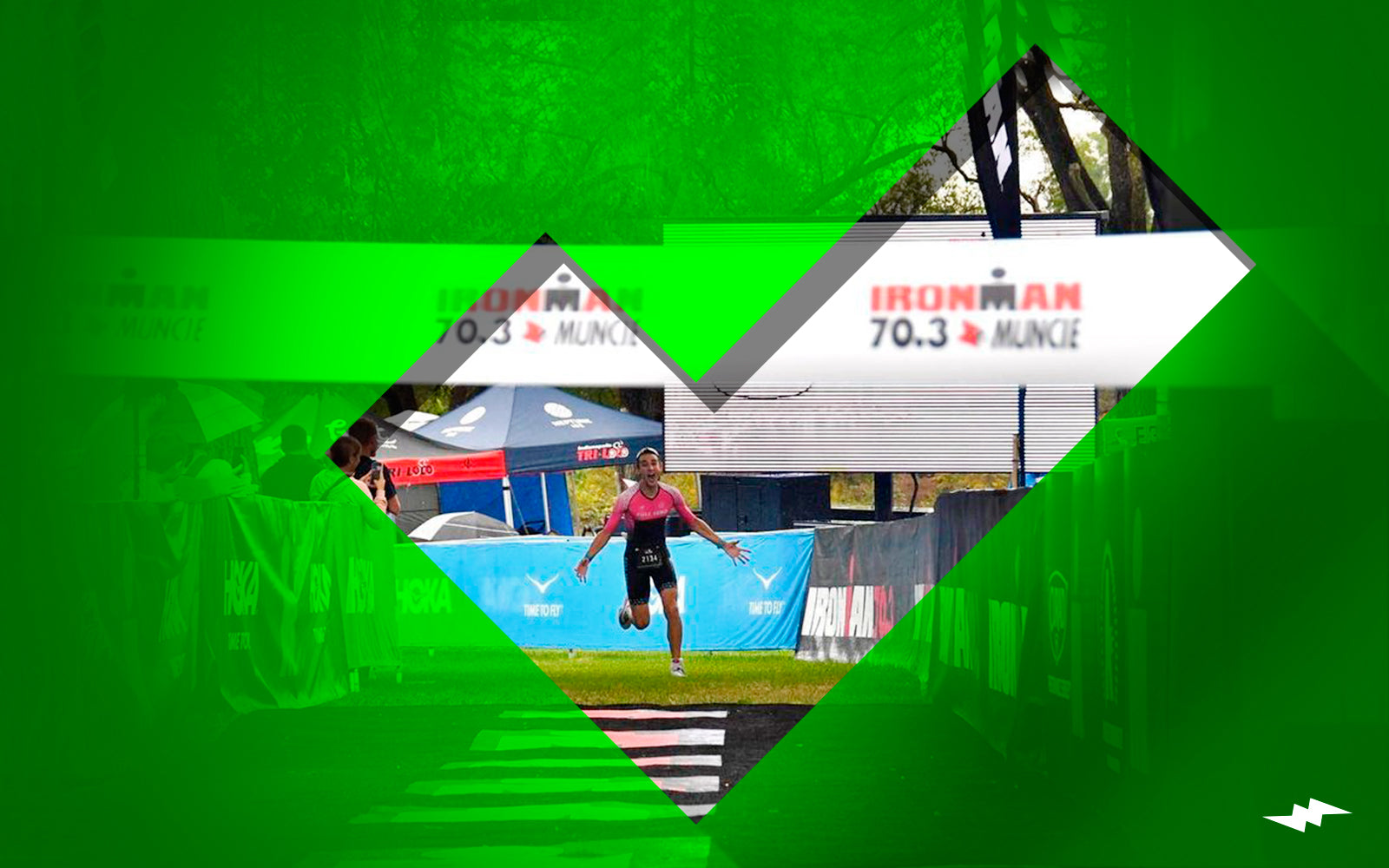
What is it that makes the Brownlee brothers such successful triathletes? How did Chrissie Wellington dominate the sport of Ironman from her very first attempt in 2007? Are successful triathletes built differently, or do they simply train more than the average person? Let’s take a look at the 5 qualities of a successful triathlete.
While triathlon is a very accessible sport which many of us do just of fun, there are a select few that take it to a higher level and make a successful career of it. These elite triathletes have some common characteristics that set them apart from the crowds. Successful triathletes have high levels of self-discipline, patience, mental toughness, calmness under pressure, competitive spirit.
Self-Discipline
The benefit of team sports such as football or basketball is that you have a group of people around you that are willing to push you harder than you will push yourself. In triathlon you do not have a team around you for much of your training.
Can you really keep an average power of 200 watts on the bike when it is 10pm on a Friday night, and you have had a long week at work? Nobody is keeping tabs on you and importantly, nobody really cares except for you. You don’t have a team around you to tell you to stop slacking. It is just you and your own self-discipline.
This ability to do the right thing, even when nobody is looking is what we mean by self-discipline. This carries over into all parts of a successful triathlete’s life, from the amount of sleep each night to their nutrition plan. Successful triathletes have high levels of self-discipline.
Patience

You may have heard the phrase ‘It’s a marathon, not a sprint’, well in our case, it’s a triathlon, not a sprint!
Kristian Blummenfelt won the Tokyo Olympic Triathlon with a time of 1:45:04, but he was nowhere in the swim leg. In fact he came in 25 seconds behind the fastest swimmer Louis Vincent. He then went on to put in a fair bike leg, followed by a blistering 29:34 10km run. He ended up overtaking Louis Vincent on the tail end of the bike leg and then sprinted off into the distance for the gold medal. This was a perfect example of patience in a race.
All too often we can allow ourselves to be caught up in the moment, go out too hard trying to keep up with those around us and then we are left regretting it during a very painful run. Those top athletes have the ability to alter their pace to suit the circumstances, and are not influenced by those around them.
Mental Toughness
Samuele Marcora, an exercise psychologist from Bangor University has done a very interesting study on mental toughness. He had participants ride ‘to exhaustion’ and then, when asked to stay on the bike and immediately perform a final 5 second sprint were still able to put an extra 500 watts of power through the pedals compared to their ‘ride to exhaustion’.
How is it that these athletes who said they could no longer continue riding still had all this extra power remaining? Marcora argues that ‘What we call exhaustion is not the inability to continue; it’s basically giving up’.
High level triathletes recognise this fact and realize that when the mind tells the body to give up, the body still has plenty to give. The good news is that mental toughness can be developed, and through methods such as self-talk, visualization and putting yourself in uncomfortable situations you can improve your own mental toughness.
Calmness Under Pressure

For all of us that have participated in triathlons, we know that things do not always go according to plan. In fact, most of the time we can expect something to go wrong. Be it a flat tyre, leaking goggles, bad weather conditions; there are just too many variables in a triathlon for everything to go as we expect.
Top triathletes have the ability to stay calm when things around them are not going as expected. This has two major benefits. Firstly, a calm mind allows you to more accurately identify the problem at hand, and then to look for multiple solutions to the problem. Rather than panicking and losing valuable energy, they are able to remain relaxed.
Secondly, there is a physiological benefit in remaining calm in that it can directly help your performance. When running, for example, we should remain relaxed and focus on being loose. There is a tendency to tighten up our muscles under stress, but this has a negative impact on our running performance. Being able to remain calm under pressure from the athletes around them is one of the key qualities of a successful triathlete.
Competitive Spirit
In 1989, in Kona, there was an epic showdown between Mark Allen and Dave Scott which went on to be known as ‘The Ironwar’. After six previously failed attempts, it was Mark Allen who emerged victorious, and went on to win 5 more Ironman championships. These two athletes showed a competitive spirit that has stood the test of time.
Those triathletes who reach the top of the game are the ones who revel in the competitive atmosphere. Rather than creating nervous tension, these athletes seem to rise to big occasions and perform to an even higher level.
Final Thoughts
How successful we can become as a triathlete is a combination of these qualities, our physical abilities, and a good amount of luck.
While we may not reach the heights of the Brownlee brothers or Mark Allen, all of the qualities of a successful triathlete are things we can learn. We can build our levels of self-discipline and patience. We can make use of techniques, before and during races, in order to remain calm. By doing so, we will become better than we were yesterday and that should be everyone’s goal.
Written for Innerforce by Stewart Spiessens
Photos. @bentolli

What is it that makes the Brownlee brothers such successful triathletes? How did Chrissie Wellington dominate the sport of Ironman from her very first attempt in 2007? Are successful triathletes built differently, or do they simply train more than the average person? Let’s take a look at the 5 qualities of a successful triathlete.
While triathlon is a very accessible sport which many of us do just of fun, there are a select few that take it to a higher level and make a successful career of it. These elite triathletes have some common characteristics that set them apart from the crowds. Successful triathletes have high levels of self-discipline, patience, mental toughness, calmness under pressure, competitive spirit.
Self-Discipline
The benefit of team sports such as football or basketball is that you have a group of people around you that are willing to push you harder than you will push yourself. In triathlon you do not have a team around you for much of your training.
Can you really keep an average power of 200 watts on the bike when it is 10pm on a Friday night, and you have had a long week at work? Nobody is keeping tabs on you and importantly, nobody really cares except for you. You don’t have a team around you to tell you to stop slacking. It is just you and your own self-discipline.
This ability to do the right thing, even when nobody is looking is what we mean by self-discipline. This carries over into all parts of a successful triathlete’s life, from the amount of sleep each night to their nutrition plan. Successful triathletes have high levels of self-discipline.
Patience

You may have heard the phrase ‘It’s a marathon, not a sprint’, well in our case, it’s a triathlon, not a sprint!
Kristian Blummenfelt won the Tokyo Olympic Triathlon with a time of 1:45:04, but he was nowhere in the swim leg. In fact he came in 25 seconds behind the fastest swimmer Louis Vincent. He then went on to put in a fair bike leg, followed by a blistering 29:34 10km run. He ended up overtaking Louis Vincent on the tail end of the bike leg and then sprinted off into the distance for the gold medal. This was a perfect example of patience in a race.
All too often we can allow ourselves to be caught up in the moment, go out too hard trying to keep up with those around us and then we are left regretting it during a very painful run. Those top athletes have the ability to alter their pace to suit the circumstances, and are not influenced by those around them.
Mental Toughness
Samuele Marcora, an exercise psychologist from Bangor University has done a very interesting study on mental toughness. He had participants ride ‘to exhaustion’ and then, when asked to stay on the bike and immediately perform a final 5 second sprint were still able to put an extra 500 watts of power through the pedals compared to their ‘ride to exhaustion’.
How is it that these athletes who said they could no longer continue riding still had all this extra power remaining? Marcora argues that ‘What we call exhaustion is not the inability to continue; it’s basically giving up’.
High level triathletes recognise this fact and realize that when the mind tells the body to give up, the body still has plenty to give. The good news is that mental toughness can be developed, and through methods such as self-talk, visualization and putting yourself in uncomfortable situations you can improve your own mental toughness.
Calmness Under Pressure

For all of us that have participated in triathlons, we know that things do not always go according to plan. In fact, most of the time we can expect something to go wrong. Be it a flat tyre, leaking goggles, bad weather conditions; there are just too many variables in a triathlon for everything to go as we expect.
Top triathletes have the ability to stay calm when things around them are not going as expected. This has two major benefits. Firstly, a calm mind allows you to more accurately identify the problem at hand, and then to look for multiple solutions to the problem. Rather than panicking and losing valuable energy, they are able to remain relaxed.
Secondly, there is a physiological benefit in remaining calm in that it can directly help your performance. When running, for example, we should remain relaxed and focus on being loose. There is a tendency to tighten up our muscles under stress, but this has a negative impact on our running performance. Being able to remain calm under pressure from the athletes around them is one of the key qualities of a successful triathlete.
Competitive Spirit
In 1989, in Kona, there was an epic showdown between Mark Allen and Dave Scott which went on to be known as ‘The Ironwar’. After six previously failed attempts, it was Mark Allen who emerged victorious, and went on to win 5 more Ironman championships. These two athletes showed a competitive spirit that has stood the test of time.
Those triathletes who reach the top of the game are the ones who revel in the competitive atmosphere. Rather than creating nervous tension, these athletes seem to rise to big occasions and perform to an even higher level.
Final Thoughts
How successful we can become as a triathlete is a combination of these qualities, our physical abilities, and a good amount of luck.
While we may not reach the heights of the Brownlee brothers or Mark Allen, all of the qualities of a successful triathlete are things we can learn. We can build our levels of self-discipline and patience. We can make use of techniques, before and during races, in order to remain calm. By doing so, we will become better than we were yesterday and that should be everyone’s goal.
Written for Innerforce by Stewart Spiessens
Photos. @bentolli
SEE WHAT CUSTOM APPAREL LOOKS LIKE
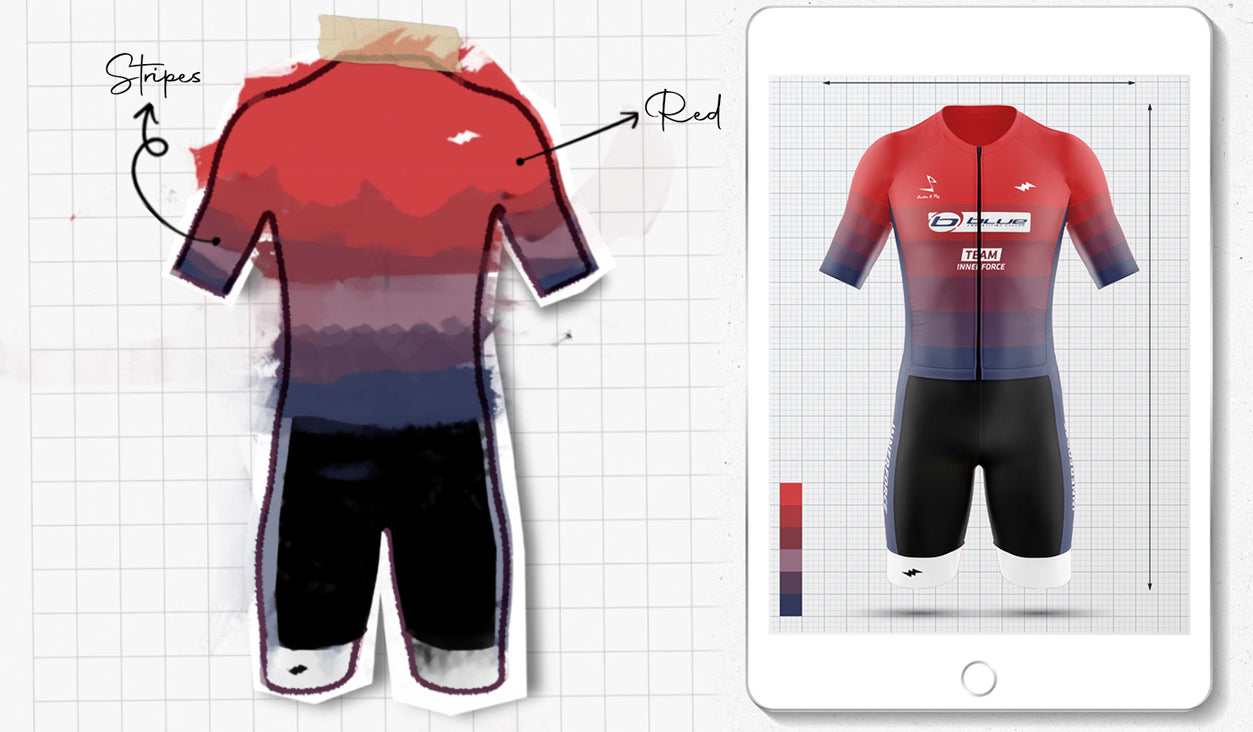
GEAR UP
MORE FROM THE BLOG
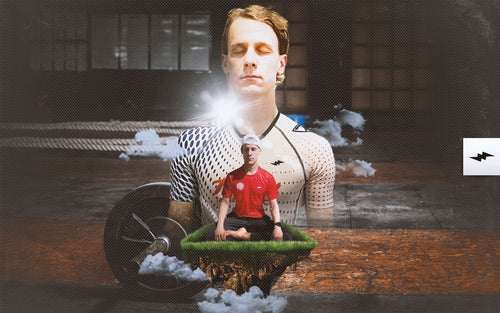
Can Meditation Help Athletes Perform Better?
Ok, so meditation ‘isn’t your bag’ but stay with us. You won’t have to grow your hair, wear baggy pants...
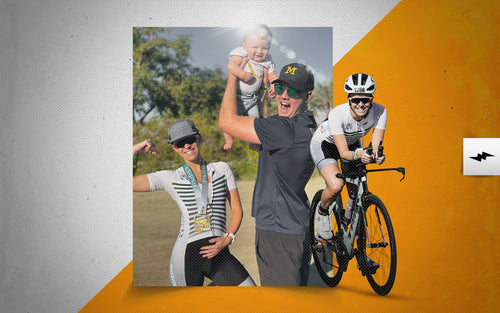
Can I Still Train During Pregnancy
Finding out that you have a little one on the way, that you are holding life within you, is one...
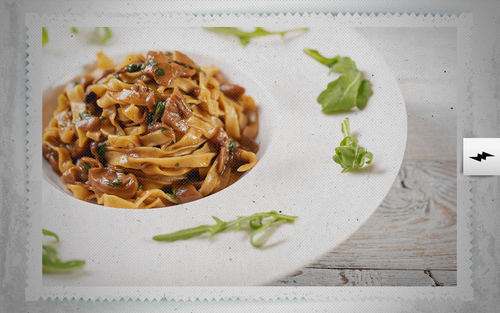
What Is Carb Loading?
We are endurance athletes, so by now we should all be fully aware that there are no shortcuts to performance....
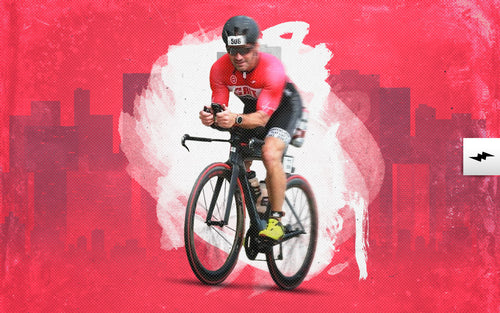
What Is A Duathlon, And Who Should Join One?
A duathlon is sometimes dubbed ‘the triathlon for non-swimmers’ because of its format of combining running and cycling, but that...



